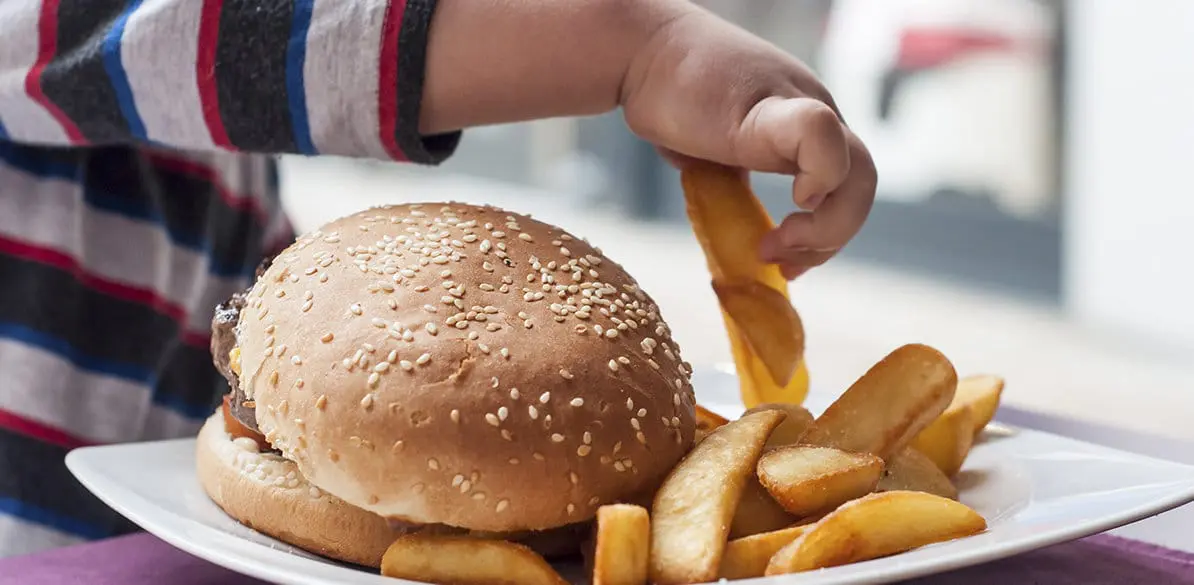A healthy diet
There are no magic formulas only correct nutritional guidelines

The first thing to do is to visit a primary care doctor or a dietitian nutritionist before deciding how a child or teenager should lose weight. Do not rely on supposedly magic solutions that could put your child’s health at risk. If the doctor prescribes a certain diet for your child, these recommendations will help you put it into practice without causing too much disruption to your family.
- Plan meals in advance and avoid improvising. This is how we can be fully aware of what we are eating and avoid the temptation to eat less healthy foodstuffs. Establish regular mealtimes and spread them out over various times of the day. If necessary, we can have 6 meals a day, such as, for example, breakfast, mid-morning and afternoon snacks, lunch, dinner and supper.
- Promote a relaxed and distraction-free atmosphere during mealtimes. Respect children’s food tastes and preferences. Do not force them to eat foods that they systematically refuse but encourage them to try new tastes or dishes.
- Control portion sizes at every meal and do not allow them to have second helpings.
- Introduce key foods into their daily meals such as fruits, vegetables, other plant-based foods, low-fat and sugar free dairy products (semi-skimmed, skimmed, light or 0% fat) and dried fruits and nuts, etc.
- Avoid high-fat, high-salt, sugary and high-energy foods such as fried food, soft drinks, pastries and chocolates, fatty and processed meats (cured meats and cold cuts, etc.), fast food, salty snacks like potato chips and any kind of candy, as well as condiment sauces such as ketchup or mayonnaise.
- Avoid added sugars, such as artificial sweeteners and instead use spices and foods with sweet flavors to season and sweeten meals (cinnamon, vanilla, dried or fresh fruits and juices).
- In the home, make it easier for children over 3 years old and for teenagers to access the recommended foods and avoid having non-recommended foods in the cupboards.
- Keep a check on your children or teenagers’ ready money if they receive pocket money or some kind of cash incentive, since this could lead to them purchasing non-recommended foods for themselves.
- Cooperate with the school to ensure that the school canteen’s menu is supervised by dietitian nutritionists. In addition, encourage the school environment (the cafeteria, vending machines, kiosks, etc.) to promote healthy eating habits by not offering highly calorific food with a low nutritional value (candy, pastries, salty snacks, soft drinks, etc.) and push for the school curriculum to include nutritional-dietary education.
- It is not advisable to resort to phytotherapy, homeopathy or “slimming” or “fat burning” dietary supplements or substances, since these products have no proven effect and do not help to establish healthy eating habits.
In collaboration with:

